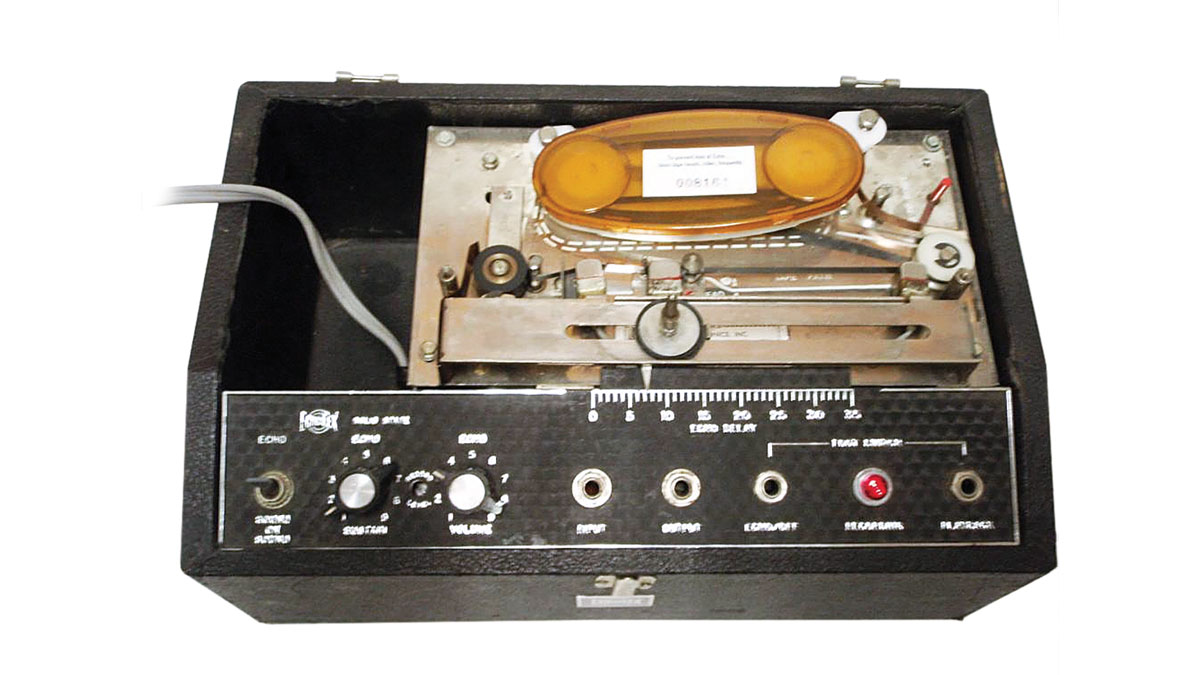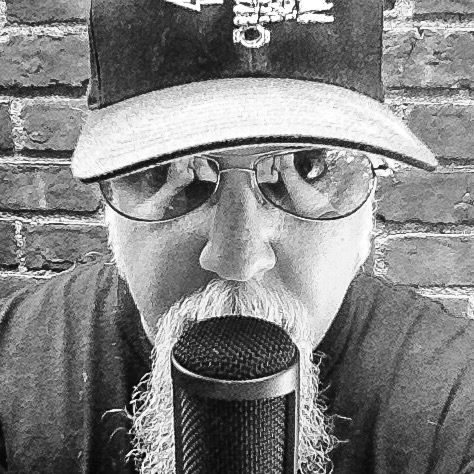Why the Maestro Echoplex EP-3 remains one of the most iconic guitar effects of all time
A favorite of Joe Walsh, Brian May, Eddie Van Halen and many more, the Echoplex EP-3 has added its tape echo and preamp magic to countless classic guitar recordings

Conventional bias in the electric guitar universe dictates that tubes are always better than solid state. However, when it comes to the differences between the tube-driven Maestro Echoplex EP-2 tape echo produced in the ’60s and the solid-state EP-3 model introduced in 1970, it’s really more a matter of preference than any blatantly obvious sonic superiority.
While the EP-2’s tube-driven preamp delivers echo effects with a distinct warm, dark and sometimes even murky character that can sound hypnotic with clean guitar/amp tones, the EP-3 is more often favored by players who want more clarity and definition from the echo repeats – particularly by guitarists who plug directly into the input of an amp driven to distortion.
The EP-3’s controls consist of sustain and volume control knobs, a slider that moves the playback head to adjust delay time and a toggle switch for echo or sound-on-sound modes. In addition to input and output jacks, there are footswitch jacks for echo on/off and playback functions.
Generally, the delay times cover a range from about 80 to 800 milliseconds, although due to the mechanical nature of an Echoplex these times can vary from one unit to another.
The sound-on-sound feature, introduced on a few EP-2 models built during the late ’60s, made the Echoplex one of the earliest looper devices, although it can be very tricky to use this feature during live performances. An added bonus is the EP-3’s built-in solid-state preamp, which slightly boosts the output, sweetens the treble and fattens the mids. Many players have used an EP-3 for its preamp alone while bypassing the echo effect.
Despite having a relatively simple set of controls compared to most of today’s digital delay pedals, the Echoplex EP-3 is a wonderfully versatile tape echo effect unit that delivers much more than simple echo/delay repeats. The sliding playback head allows users to adjust delay times for tight reverb-like textures, vintage rockabilly slapback, dotted eighth rhythmic patterns and even short repeating phrases.
Some well-known examples include the slapback effects Jimmy Page often used to fatten his lead tones, Eddie Van Halen’s single-repeat 300ms delay for Ain’t Talkin’ ’Bout Love, East Bay Ray’s trailing long delays on the Dead Kennedys’ Holiday in Cambodia and Police Truck and the dotted eighth effect on Pat Travers’ Heat in the Street.
All the latest guitar news, interviews, lessons, reviews, deals and more, direct to your inbox!
Brian May also used a pair of modified Echoplexes for creating the stacked three-part harmonies heard on Queen’s Brighton Rock.
While the Echoplex delivers an impressive variety of traditional musical delay effects, it also excels at unorthodox special effects that even the best digital modeling units don’t quite replicate.
Tommy Bolin was a master of manipulating his Echoplexes during live performances, cranking up the sustain control to oscillating feedback and raising or lowering pitch by moving the delay slider. These effects were also popular with dub reggae producers, who made the Echoplex into an instrument unto itself.
Suggested settings
Van Halen – Ain’t Talkin’ ’Bout Love
Echo setting, Echo Repeats: 1, Echo Volume: 2, Echo Delay: 12 (approximately 300ms)
Tip: Plug effect directly into the input of an amp pushed to distortion. Use palm muting and play percussively to get the delay to counteract rhythmically.
Joe Walsh – The Bomber
Echo setting, Echo Repeats: 4, Echo Volume: 3, Echo Delay: 25 (approximately 500ms)
Tip: Use a slide and alternate between percussive notes for pronounced echoes and sustained notes for moody, reverb-like ambience.
Chris is the co-author of Eruption - Conversations with Eddie Van Halen. He is a 40-year music industry veteran who started at Boardwalk Entertainment (Joan Jett, Night Ranger) and Roland US before becoming a guitar journalist in 1991. He has interviewed more than 600 artists, written more than 1,400 product reviews and contributed to Jeff Beck’s Beck 01: Hot Rods and Rock & Roll and Eric Clapton’s Six String Stories.




![B.B. King [left] cups his hands to his ear as he asks the crowd for more. Joe Bonamassa, with a Les Paul, gives his crowd a thumbs up](https://cdn.mos.cms.futurecdn.net/P3XrQLh86C27JfPp4AGp6n.jpg)